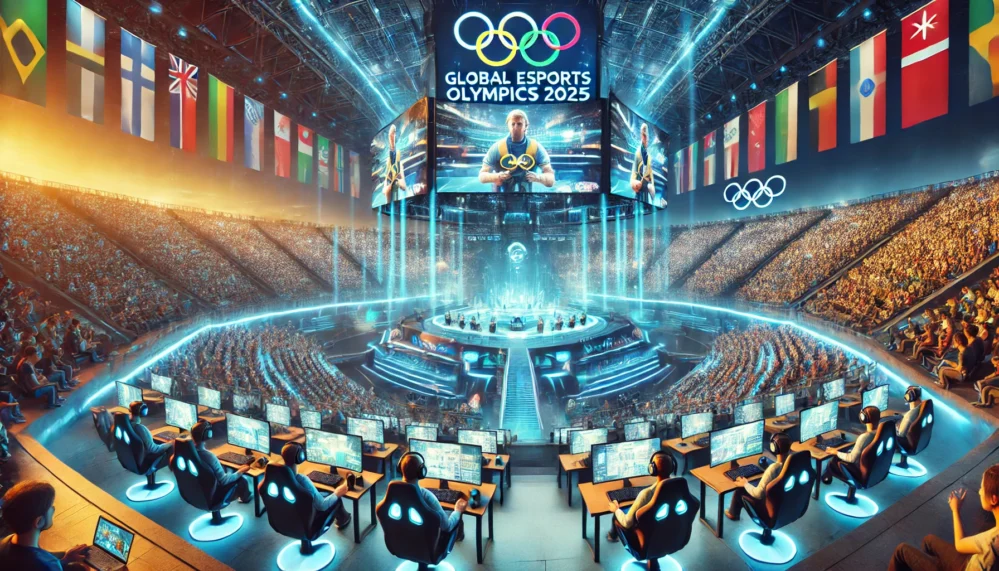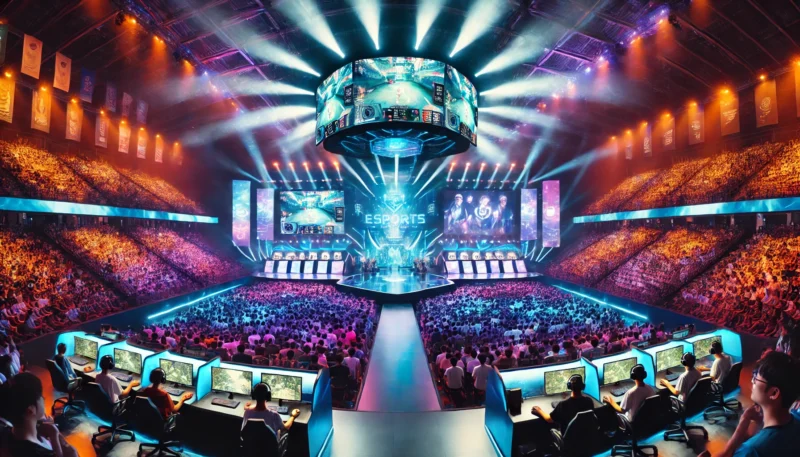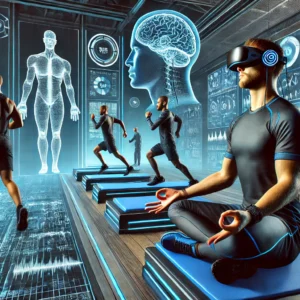
Have you noticed the uproar about the Global Esports Olympics 2025 lately? Some folks are absolutely sure that competitive gaming deserves its place among the world’s largest athletic contests, whereas others argue that esports can never really match the physical rigor we traditionally associate with sports like athletics, swimming, or football. Politics, governments, youth, celebrities, and even senior citizens have joined the dialogue. The debate has turned into something bigger than a few people playing video games for fun. Let’s explore the countless layers of this conversation, from how it might transform global revenue to whether or not Grandpa can actually get excited about the idea of awarding gold medals for digital battles.
Shifting Boundaries: Esports Takes Center Stage
One evening about a year ago, I distinctly recall sitting with my cousins in a crowded living room, watching a nail-biting esports tournament on a streaming platform. The roar from the digital audience felt just as intense as a live stadium cheer. And guess what? International committees like the Global Esports Federation (GEF) have recognized this surge, forging strategic partnerships with the European Olympic Committees, as reported by The European Olympic Committees official site. The upcoming Global Esports Olympics 2025 is no longer just a fairy tale; it’s shaping up as an actual global competition with a serious set of rules, a huge prize pool, and undeniably passionate fans.
Why Esports is Suddenly So Relevant
- Massive Growth: Since the early 2020s, esports viewership has soared, with digital tournaments drawing millions of eyes worldwide. Real-time streaming services have pushed these events to a broad audience.
- Technological Advancements: Virtual reality, augmented reality, and cutting-edge gaming hardware make competitions more immersive and inclusive.
- Cultural Shift: Younger generations see gaming not merely as a pastime but as a legitimate sport that demands teamwork, precision, and strategic thinking.
If we peek at the official Olympic Esports Games portal, we’ll discover how, in some previous events, the International Olympic Committee (IOC) showcased digital sports as an experimental endeavor. These earlier glimpses laid the groundwork for the more comprehensive 2025 edition. Interestingly, the IOC itself made an announcement in mid-2024 hinting at future expansions in esports, as covered by Fortune.
Yet, there’s tension, too—some older IOC members remain skeptical about whether esports fosters the same physical discipline as classical athletic tournaments. Paradoxically, these skeptics also appear to support certain forms of virtual sports (like e-sailing or e-cycling) that closely mimic the original physical sports. It’s a debate that continues to bubble up in the background.
Government Stances: Policies and Plans
Governmental notes around the world have showcased a range of support and uncertainty. Certain Asia-Pacific nations, particularly South Korea and China, have wholeheartedly embraced esports, building state-of-the-art venues and even introducing official policies to develop their competitive gaming scene. Meanwhile, Western countries are somewhat divided. Some local governments across Europe offer grants to emerging esports clubs, whereas other authorities remain unconvinced, labeling competitive gaming as “mere entertainment.”
Political Arena: Who’s Backing What
- Pro-Esports Politicians: Some see it as an economic driver, projecting job creation, tourism for large tournaments, and the chance to brand their cities as gaming hubs.
- Cautious Voices: Others want stricter regulations around gaming, citing concerns about screen time, mental health, or exploitation of younger players.
For instance, French officials in mid-2025 proposed a legal framework for esports athlete contracts—mirroring how professional footballers or rugby players sign official deals with clubs. The government is keen to position itself as a capital for digital competitions. Meanwhile, certain U.S. legislative bodies are wrestling with how to categorize esports. Should they treat pro gamers like standard athletes or as entertainment workers? The question remains unresolved.
During a parliamentary session in Brazil earlier this year, a few members championed a plan to integrate esports into high school curriculum, making competitive gaming an elective just like physical education. Others argued that would diminish focus on traditional sports. This disagreement underscores the political complexities behind making esports a mainstay in mega-events.
Scientists, Research Labs, and Mental Health
Oddly enough, researchers and scientists are among the biggest contributors to the esports conversation. A 2023 study published by PMC examined how pro gamers often endure mental and physical stress—just like traditional athletes. Another wave of labs focuses on cognitive enhancement through gaming, championing the benefits of improved reflexes and problem-solving skills. However, subtle negative effects creep in if players are overexposed or burned out.
Insights from Research Labs
- Positive Findings: Enhanced coordination, social connectivity, and mental agility
- Potential Downsides: Addiction, anxiety, and possible musculoskeletal issues if training is unbalanced
The introduction of the Global Esports Olympics 2025 has influenced these research labs to recommend standardized guidelines for training. Some have proposed mandatory mental health checks and fair play protocols—things we historically associate with doping tests or medical evaluations in physical sports. The academic push to formalize esports has been very real: medical committees are creating strict regulations to ensure gamers’ well-being. That’s partly how the idea of “esports athlete” is no longer a casual label.
Celebrity Endorsements and Sports Icons Speaking Out
Actors, sports legends, and high-profile entrepreneurs are also voicing their excitement (or apprehension) about esports at the highest competitive level. Famous footballer-turned-entrepreneur David Beckham invested in an esports company a while ago, sharing his belief that virtual competitions can serve as a gateway for global youth engagement. On the other hand, some tennis icons remain disinterested, seeing little overlap between swinging a racket on a tennis court and frantically clicking away on a controller.
Billionaire Businessmen Chime In
Certain prominent tech moguls have jumped on the esports bandwagon. They tout the massive potential for cutting-edge innovations, from augmented reality experiences during live tournaments to new streaming platforms offering immersive 360-degree vantage points. Meanwhile, a handful of conservative corporate leaders remain uncertain about associating their brands with something they still perceive as “just a game.”
Oddly, some older entrepreneurs have changed their perspectives over time. I chatted with a local millionaire who once considered gaming a trivial pastime. He told me he pivoted his viewpoint once he saw his grandson, a rising esports star, earn a scholarship to a reputable university thanks to his digital sports prowess. It’s a testament to how generational shifts can reshape even the most stubborn mindsets.
Senior Citizens: Skepticism and Surprising Enthusiasm
The older demographic does not present a monolith of anti-esports sentiment. Sure, a sizable portion of them dismiss the notion of awarding gold medals for pressing keys. But at the same time, some seniors, particularly those comfortable with technology, see esports as an avenue for bridging generational divides. Because these tournaments are global and easy to stream, grandparents can watch their grandchildren compete—even if it’s on a digital field, not a physical one.
- Positive Social Impact: Many find new ways to bond with younger family members through shared viewing experiences.
- Lingering Doubts: Others worry that promoting esports might deter the youth from more physically active pursuits.
There was a viral story in late 2024 about a 70-year-old who formed a seniors’ esports club, ironically schooling teenagers in strategy games. This phenomenon underscores how older generations can still adapt to new frontiers—even if they occasionally fumble with the controller or mouse.
The Youth Perspective: A Dream Stage
Obviously, the younger crowd is among the loudest champions of the Global Esports Olympics 2025. Many see this official recognition as a dream come true—an affirmation that gaming is more than a pastime. In some high schools, students aspire to join their nations’ future Olympic esports squads. Social media is bursting with hashtags celebrating this shift.
A Youthful Vision of Esports
- Career Opportunities: Younger players now see a pathway to professional recognition, sponsorships, and endorsements.
- Community Building: Online platforms expand beyond gaming, offering social spaces that unify folks worldwide.
- Skill Development: Discipline, communication, and leadership are integral for winning teams.
However, it’s not all sunshine and rainbows. Some students feel the system focuses too heavily on star players while neglecting broader, inclusive gaming clubs. And ironically, you’ll find teenage cynics who prefer playing casually, uninterested in the intense regimen required by professional esports.
Social Aspects: Inclusivity or Elitism?
One significant criticism is the accessibility factor. Not everyone can afford the high-end gear necessary to stay competitive, from powerful gaming computers to specialized controllers. This leads to questions about whether the Global Esports Olympics 2025 can truly represent global inclusivity if the digital playing field isn’t level. Critics argue that it mirrors issues found in certain traditional sports, where only well-funded athletes can afford top-notch training facilities.
On the brighter side, many grassroots efforts strive to make esports more affordable. Local gaming communities are springing up in libraries, community centers, and even in underprivileged neighborhoods. The success of these local hubs could drastically change the narrative, turning esports into a unifying force rather than an exclusive one.
Economic Potential: Business, Revenue, and Global Growth
You can’t talk about esports without tackling its financial dimension. According to the Global Esports Federation, the global esports market might surpass billions in revenue by 2025. Just last year, the industry was flirting with $1.5 billion in global earnings, and trend analyses suggest exponential growth. Sponsorship deals, advertisement revenue, tournament ticket sales, and franchised leagues are fueling this surge.
Where the Money Flows
- Sponsorships: Major corporations—tech giants, beverage brands, automotive companies—are investing in esports teams.
- Merchandising: Jerseys, posters, in-game items, and brand collaborations can generate significant income streams.
- Media Rights: Streaming services bid aggressively for exclusive broadcasting rights, comparable to the deals we see in professional football or the NBA.
- Tournament Hosting: Cities hosting large-scale events witness a tourism boost, with hotel bookings and local businesses thriving on the influx of fans.
It doesn’t stop there. Some economists predict that an official Olympic-level event could catapult esports revenues even higher by attracting sponsors who previously hesitated to associate with gaming. In fact, WIPO’s article on intellectual property in esports outlines how brand licensing and in-game advertising might be the next frontier for boosting profitability.
Dates, Timetables, and Locations
Although official announcements are still trickling in, rumors suggest that the Global Esports Olympics 2025 will feature regional qualifiers spread throughout mid-2025, culminating in a massive live final in November or December—though some insiders mention it could be October. A widely circulated story claims that major cities like Tokyo, Los Angeles, Paris, and Singapore are submitting proposals to host the concluding rounds, aiming to replicate the success that hosting mainstream events like the FIFA World Cup or the actual Olympics can bring.
- Late January–March 2025: Preliminary local qualifiers in various countries
- April–June 2025: Continental tournaments (e.g., Europe, Asia-Pacific, Americas)
- July–August 2025: Special wildcard events—some might be fully online
- October/November/December 2025: Grand Finals in a to-be-announced city
It remains somewhat uncertain which location will eventually snag the final stage, but signs point to Asia or Europe, given both regions’ robust esports ecosystems. And if you’re a stickler for verified news, keep an eye on upcoming announcements from the Global Esports Federation and the official Olympics.com channels.
Contradictory Takes: Can Esports Really Be a “Sport”?
Here’s the heart of the debate. Traditionalists assert that sports must involve tangible physical exertion, something that might not translate when your body is stationary, and only your wrists and fingers perform the heavy lifting. Some physiologists counter that fine motor skills and mental endurance are essential. After all, you don’t label chess as a mere game, do you? The question then arises: is esports more akin to chess or to marathon running?
The Middle Ground
In 2024, a bunch of sports scientists published a report: esports can be considered a mental-physical hybrid. Reaction time, endurance to maintain focus for extended periods, and strategic synergy among teammates create parallels to traditional sports. My personal stance? The line is blurred, and maybe that’s fine. The beauty of athleticism in the modern era might be that it’s no longer confined to the physical domain. If awarding gold medals fosters camaraderie, competition, and international unity, maybe that’s enough to label it “sport.”
However, there’s no denying the comedic contradiction: we praise top esports players for blazing reflexes, yet the training environment sometimes entails sitting for ten hours a day. This can lead to a pressing need for physical exercise regimens specifically tailored for esports athletes—some gaming clubs even hire personal trainers to manage posture, breathing techniques, and mental stamina.
Personal Anecdotes: A Glimpse into the Esports Lifestyle
I remember hearing from a friend who joined a prominent pro gaming squad in 2023. She was training from 10 a.m. to 8 p.m., with strategic sessions, scrimmages against rival teams, and performance analyses. It eerily mirrored the rigorous schedules we see in soccer academies or swim teams, only with more emphasis on mental preparedness. She had to see a sports psychologist to manage performance anxiety. The irony in all this? Her grandmother initially scoffed at the idea—until she witnessed the next-level discipline and eventually started cheering her on.
Another awkward moment came when local journalists interviewed a pro gamer who’d just earned a six-figure sum at an esports tournament. He casually mentioned he was more anxious dealing with the press than making in-game calls in front of a global audience. That’s the sort of phenomenon unique to esports: digital anonymity or gamer tags can reduce the pressure for some, while live coverage and mainstream recognition can be nerve-wracking in new ways.
Cultural and Social Paradigm Shifts
A few older adults, who once viewed video games as a waste of time, now tentatively accept them as part of mainstream culture. These changes aren’t happening overnight, but the momentum is noticeable. With the Global Esports Olympics 2025 looming, schools are creating after-hours clubs, mainstream media is scheduling prime-time coverage, and some local community centers host monthly gaming tournaments. We’re witnessing a pivot from “gaming is for kids” to “gaming is a worldwide phenomenon we can’t dismiss.”
Potential Gaps in Coherence
Critics point out that all the hoopla might overshadow classic sports. Will we see shrinking viewership for, say, track and field if fans flock to esports streams instead? Some studies suggest no, as audiences typically expand to include both. But a subtle tension lingers, with major sporting sponsors eyeing budgets allocated for new or existing fields. This swirl of shifting alliances and partial uncertainties is part of the excitement, but also part of the confusion.
Occasionally, you’ll catch a glaring contradiction: one moment, an older athletic federation applauds the innovative synergy of new technology; the next, they balk at awarding medals. This push-pull dynamic might persist right up until the official opening ceremony.
Intellectual Property and Legal Challenges
Esports rely on video games owned by private publishers. That’s a stark difference from, say, basketball, which doesn’t have an owner. The issue is so serious that the World Intellectual Property Organization (WIPO) spotlighted it in an article titled “Esports: Everything to Play For”, underlining the complexities of licensing, franchising, and in-game brand representation. If publishers revoke or change the terms of their games, it could upend entire esports leagues.
In the context of the Global Esports Olympics 2025, negotiations with game developers are crucial. The biggest tournaments revolve around stable partnerships, ensuring that the chosen titles are widely recognized and remain operational. Some developers relish the Olympic spotlight, but others hesitate, fearing the constraints of doping regulations, global broadcast rights, or having to restructure their entire business model to comply with Olympic guidelines.
Possible Future Scenarios: Evolving Beyond 2025
Speculating about 2025 from the vantage point of now is exciting. By the time we hit the latter half of the decade, esports might become even more immersive, with VR-based competitions that require substantial physical movement. We could see new spin-off events focusing on puzzle games, simulation experiences, or educational titles—broadening the definition of “sport” further. Alternatively, we might see a pushback from certain corners of the public who believe awarding Olympic medals in esports dilutes the prestige of physical competitions.
- Scenario A: Full Integration
Esports becomes fully interwoven with the Olympics, featuring standard doping tests, opening ceremonies, and national teams. - Scenario B: Hybrid Events
Virtual + physical reality competitions, where participants alternate between real-world tasks and digital components. - Scenario C: Separate Legitimacy
Esports stands as its own recognized global phenomenon, but not fully integrated into the traditional Olympic system.
It’s plausible we’ll see bits of each scenario, where certain esports categories mesh seamlessly with existing sports, while more niche titles form smaller, parallel events. The potential for synergy is enormous, though, so I’d bet good money on the notion that esports will be an ongoing hot topic well beyond 2025.
Keeping an Eye on the Official Roadmap
To stay updated, watch for announcements from official bodies like the IOC, the Global Esports Federation, or the newly formed committees bridging traditional and digital sports. They publish timetables, qualifiers, and partnership details that will shape the entire ecosystem. For a deeper background, check out:
- Olympic Esports Games Official Page
- Global Esports Federation Website
- Fortune’s Esports Coverage
- Scientific Study on Esports & Mental Health (PMC)
- EOC and GEF Partnership Announcement
- WIPO on IP in Esports
You can also locate high-level official announcements through government websites in countries that are actively supporting the esports movement, such as South Korea’s Ministry of Culture, Sports, and Tourism, or the French Ministry of Sports, which has published guidelines related to e-competitions.
Internal and External Links for Further Reading
If you’d like to explore more about technological breakthroughs shaping modern sports, check out our blog’s article on Cutting-Edge Virtual Reality in Athletics (internal link). Meanwhile, external sources like the ones listed above shed light on the complexities, from regulations to research on mental health. Following a balanced diet of reading—both official statements and critiques—helps paint a complete picture.
Quick FAQs
Q1: Will esports replace traditional sports in the Olympics?
It’s highly unlikely. Most indications show that esports and traditional sports can coexist, each appealing to different audiences and skill sets. Even if it’s part of the official Olympics someday, it wouldn’t replace core sports but rather broaden the event’s scope.
Q2: Are esports athletes required to undergo drug testing?
In many major tournaments, yes. They’re often tested for performance-enhancing substances that might give them a competitive edge, particularly stimulants. With the Global Esports Olympics 2025, it’s anticipated that similar regulations will be in place.
Q3: How do game publishers profit from esports in the Olympics?
Publishers benefit from licensing fees, advertising, and brand recognition. Hosting an Olympic-level event can skyrocket a game’s popularity, leading to higher sales or subscriptions.
Q4: Do all governments endorse the esports movement?
Not entirely. While many progressive governments actively fund esports, others remain skeptical due to cultural or health-related reservations. Policies differ widely from country to country.
Q5: How can I qualify for the Global Esports Olympics 2025?
You’d typically compete in local or regional qualifiers. Keep an eye on official announcements and register through recognized esports federations in your country. Specific qualification criteria will depend on the game titles being featured.
“A massive stadium filled with an excited crowd watching an esports tournament on giant digital screens.

Concluding Thoughts and Call to Action
The Global Esports Olympics 2025 stands as a major milestone in the fusion of technology and sports culture. Governments worldwide are either putting forth policies to bolster esports or are locked in debates over its true value. Celebrities, politicians, older folks, and the younger generation each bring a unique perspective to the table, making for a fascinating intersection of ideologies. Research labs underscore the complexities in mental health, physical strain, and performance enhancement. Global businesses are salivating at the potential revenues, while critics grumble about the blurred line between real sports and digital games.
From personal stories—like a grandmother cheering for her e-athlete granddaughter—to high-profile endorsements and giant streaming deals, esports has already redefined how we view competition. Will it forever reshape the concept of the Olympics, or merely carve out its own niche on the world stage? Only time will tell, but one thing is certain: the crowd—and the controversy—is growing louder.
If you’re intrigued, stay tuned to official announcements. Grab your gaming headset, or your popcorn if you’d prefer to watch, and join the conversation. Whether you’re a hardcore esports fan, a curious skeptic, or somewhere in between, it’s clear the upcoming 2025 event will be a spectacle to remember. And don’t forget to check out our other sports-related articles, sign up for our newsletter, and keep this debate alive by sharing your thoughts in the comments. Let’s see where this groundbreaking movement will lead us in the years to come.



